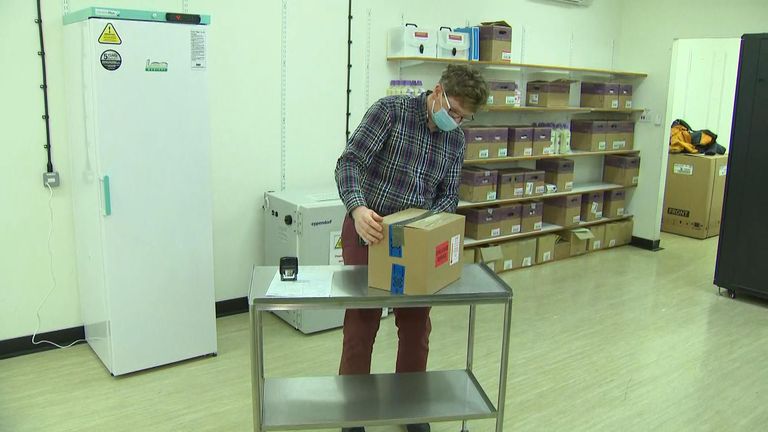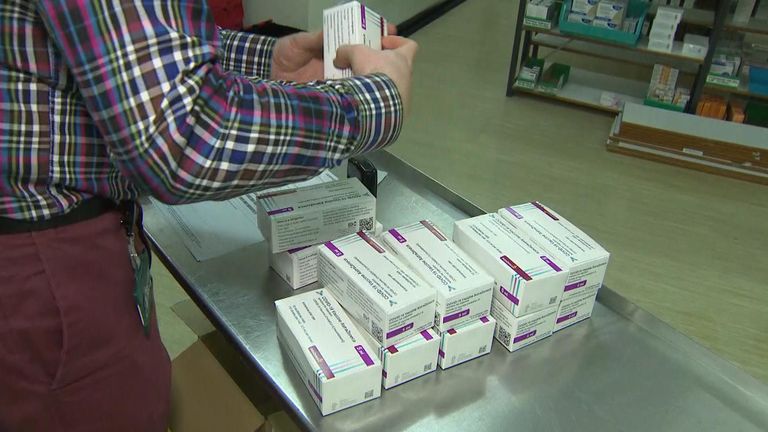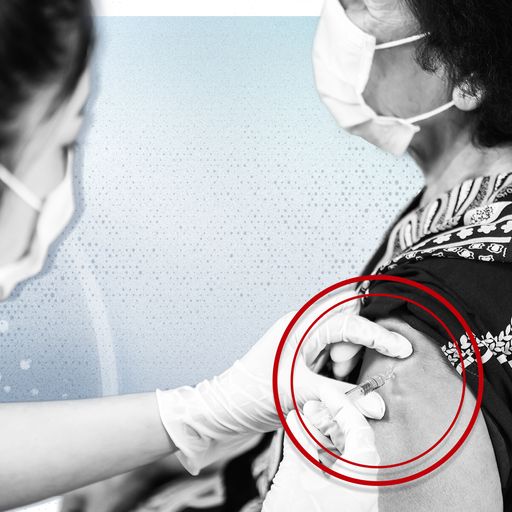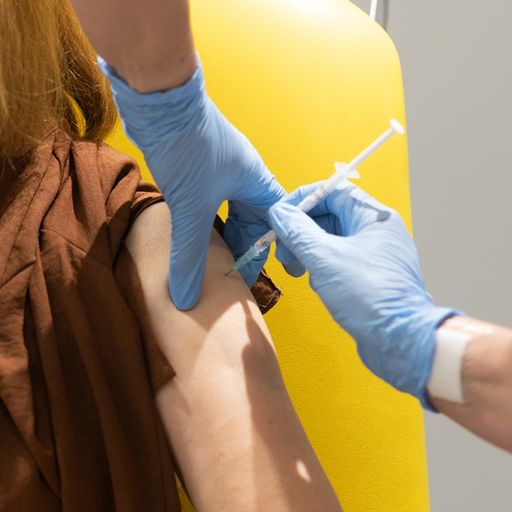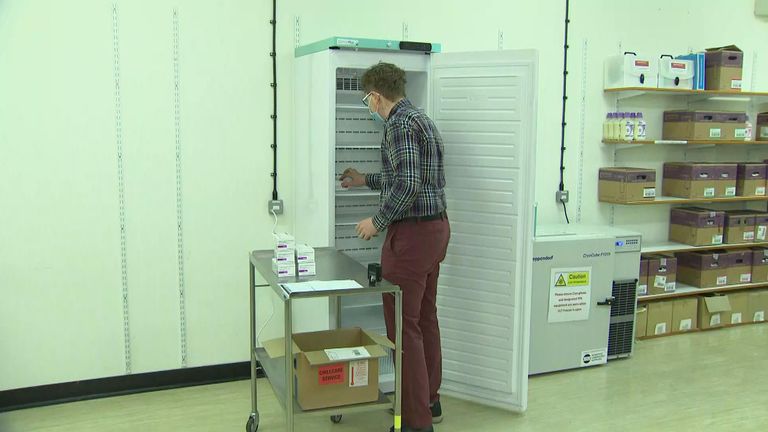Batches of the Oxford/AstraZeneca coronavirus vaccine have started arriving at UK hospitals ahead of the jab's nationwide roll-out.
Some 530,000 doses of the treatment will be available for roll-out across the UK from Monday, with vulnerable groups already identified as the priority for immunisation.
The vaccine has been developed in the UK by Oxford University and the pharmaceutical giant AstraZeneca.
The roll-out will begin after England's chief medical officer Chris Whitty warned vaccine shortages are likely to cause problems for "several months".
He added the UK urgently needs to maximise the number of people who are vaccinated, but added a lack of global supplies will likely hamper efforts to protect the nation in the first part of 2021.
Public Health England (PHE) has said it does not recommend mixing coronavirus vaccines from different suppliers amid fears over the possible shortages.
Both the Oxford/AstraZeneca vaccine and the Pfizer BioNTech vaccine, which has been rolled out from December, require two doses.
The UK government had issued guidance telling NHS medics that if a person who has received their first coronavirus jab goes back for their second but the same type is not available, or the first vaccine type is unknown, then it is "reasonable" to offer a dose of another vaccine.
Dr Mary Ramsay, head of immunisations at PHE, has since told Sky News that mixing is not recommended and should only happen on "rare occasions".
The Princess Royal Hospital in Haywards Heath, which is part of Brighton and Sussex University Hospitals NHS Trust, was one of the first hospitals to take delivery of a batch of the Oxford/AstraZeneca vaccine on Saturday morning.
Follow live COVID-19 updates from the UK and around the world
First doses of the vaccine will be administered after the UK recorded another 57,725 coronavirus cases on Saturday - its highest ever daily total.
Another 445 deaths were also reported.
The total number of people who have now died of COVID-19 in the UK now stands at 74,570.
Dr George Findlay, chief medical officer and deputy chief executive at the trust, said the vaccination programme gives NHS staff "more confidence" coming into work.
He added the Oxford/AstraZeneca vaccine, which can be kept at normal fridge temperature, is "much easier" to administer when compared with the jab from Pfizer and BioNTech, which needs cold storage of around minus 70C.
More than a million people having already received the first of two jabs of the Pfizer/BioNTech vaccine.
Second doses of either vaccine will now take place within 12 weeks rather than the 21 days that was initially planned with the Pfizer/BioNTech jab, following a change in guidance which aims to accelerate immunisation.
Dr Findlay has said hundreds of people are expected to be vaccinated per day at the Princess Royal Hospital site, with efficiency expected to increase after the first few days of the programme.
He added: "We've got a delivery hub set up in the grounds of this hospital, so we've got the infrastructure there to invite people in for booked appointments.
"And we will make sure those booked appointments are full every day from Monday going forward."
NHS staff and social care workers who are at risk are among those who will be vaccinated with the Oxford/AstraZeneca jab from next week.
Dr Findlay said: "We started vaccinating on our other hospital site a few weeks ago, it's been seen as a really positive step, something that gives staff more confidence to come to work.
"You only have to look at the statistics over the last 10 months about how many staff have suffered illness, or sadly lost their lives.
"This gives staff the confidence to come to work to be able to look after patients."
Dr Findlay said the hospital has been under "quite a lot of pressure" since the start of December due to a rise in cases amid a new variant of the virus.
He added: "And that's increased over the past few weeks as cases in the community increase, and then hospitalisations increase, and critical care requirements increase.
"Staff are coping amazingly well, they are working incredibly hard, and we are increasing capacity to deal with the most sick patients.
"So whilst it's really difficult, and staff are under pressure, the hospitals are coping and we are still providing care to everybody who needs it."
Dr Findlay said the hospital had decreased planned care, with some routine operations postponed to enable staff to focus on the COVID-19 response.
Subscribe to the Daily podcast on Apple Podcasts, Google Podcasts, Spotify, Spreaker
He added that he worries about the physical and mental wellbeing of workers, calling it an "incredibly difficult year", as fear remains over potential staff burnout.
He added: "We have gone through wave one, which was unknown and hugely pressured.
"We then tried to focus on recovery, so deliver care to the patients that were postponed, and people worked really hard at that.
"And then we're straight into the next wave so nobody has had a break really for pretty much all year, so we are really worried about fatigue, stress, strain, and we're doing everything that we can to try and support our staff. But it's just always a worry."



